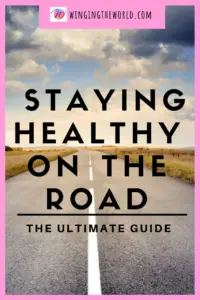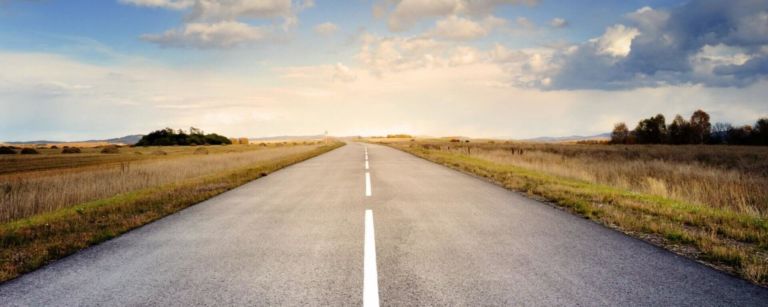Take it from someone who knows- there is nothing worse than being hauled up in a hotel room all day feeling rubbish. Naturally, it is impossible to avoid getting sick all of the time but being prepared can be the best kind of damage limitation. Of course, travelling is meant to be fun, but that is no excuse for neglecting your health. Check out these top tips for staying healthy on the road:
1. Visit your GP.
Explain where you are going and for how long. They can advise you on any vaccinations or tablets that you require. Don’t go overboard and get loads of vaccinations you don’t need as these can be very costly. For example; food and hygiene precautions are usually enough to avoid getting infected with cholera but if you are doing aid work in rural Africa where medical services are limited, a vaccination might be a worthwhile investment.
2. Buy travel insurance.
This one is a complete no-brainer and the first of the travel commandments. Always include travel insurance in your budget because it can be a lifesaver, literally. If you get ill abroad and you haven’t invested in this, it could set you back into the tens of thousands of pounds. I always find it’s comforting to have the peace of mind that comes from having travel insurance even if you don’t have to use it. World Nomads is a good choice to get you covered and Staysure are great if you have a pre-existing medical condition.
3. Get a European Health Insurance Card.
Sadly not everyone qualifies for an EHIC but if you do, then get one. This card means that you are entitled to the same level of state care provided to the inhabitants of the country you’re visiting (only in Europe). Don’t be fooled though, this doesn’t always mean free treatment and you should still purchase travel insurance for the duration of your trip.
4. Buy a travel first aid kit and a sterile needle pack.
You’ll be surprised at how much you use your first aid kit; blisters are an unfortunate side effect of long-term travel! If you end up needing medical attention somewhere where the hygiene standards aren’t great, it is useful to be able to offer the doctors your own set of sterilised needles and syringes. You can pick these up these kits cheap all over the internet.
[amazon_link asins=’B00SWS6URE,B01BLH39T4′ template=’ProductCarousel’ store=’wingtheworl-21′ marketplace=’UK’ link_id=’945a6e04-c53d-11e6-aa7c-39bfecca94a2′]
5. Check the water status anywhere that you visit.
In many countries, it is unsafe to drink from the tap so make sure that you always buy bottled water and check that the seal isn’t broken. It has been known for locals to fill up empty bottles with tap water and sell them to unsuspecting travellers. Avoid ice whilst drinking in bars and restaurants.
6. Avoid dirty food establishments.
Hygiene standards are not universal so avoid eating anywhere that looks like a breeding ground for disease. Watch out for riverside restaurants as plates may be washed in the river. Check your meat is thoroughly cooked before eating as in some countries not all meat is stored properly. If you contract travellers’ diarrhoea (it happens to us all at least once), then make sure to stay hydrated and avoid eating until your symptoms improve.
7. Protect yourself against disease.
Invest in a portable mosquito net and use bite protection as well as malaria tablets if necessary. Even if you have had your rabies jab, it is not advisable to pet animals in developing countries.
[amazon_link asins=’B000OQ9A9M,B00CJUUL2G’ template=’ProductCarousel’ store=’wingtheworl-21′ marketplace=’UK’ link_id=’f7f23002-c53d-11e6-a4f3-05f67c7f4d31′]
8. Lock up personal items in hostels.
If you are staying in budget hostels in poorer countries, be aware that the staff employed there may not be getting a good wage. It is not unheard of for cleaning staff to use guest toothbrushes or razors if left out. Although it is highly unlikely, it is possible to contract Hepatitis and HIV from this. Lock up all such items when you leave your room and maintain good hygiene standards at all times.
9. Use protection.
Travel is a deeply enriching journey and what better time to meet a like-minded partner? If you are lucky enough to find your soul mate whilst travelling always make sure to use a condom when engaging in sexual activity. To be extra safe, it is always best to bring your own from home. Counterfeit condoms which are dangerous and unfit for purpose, have been known to surface all over the world.
10. Avoid sun damage.
One of the most obvious health risks but probably the one that catches most of us out is sun damage. Cover up when you can and make sure you don’t forget your sunglasses! Whilst it is easy to forget to reapply sunscreen when you’re relaxing on a tropical beach, it is so important in keeping your skin healthy and avoiding a great deal of discomfort. Trust me, as a redhead I know! Choose a sun cream with a high SPF and reapply every couple of hours, particularly after you’ve been in the water. If you are unlucky enough to get burnt, take paracetamol or ibuprofen. These will ease the pain and reduce the inflammation. Buy a good aftersun and lather up regularly; I recommend an aloe vera product. If you are suffering from oozing blisters, it is best to seek medical attention. Stay covered up until your skin has fully healed.[amazon_link asins=’B001B0OJXM,B004S5YGG2′ template=’ProductCarousel’ store=’wingtheworl-21′ marketplace=’UK’ link_id=’53a16911-c53e-11e6-a0ec-0b8025e79c19′]
What are your top tips for staying healthy when you travel?
This post contains affiliate links. If you purchase any of the above items using the links, I will earn a small commission at no extra cost to you. Thank you!

Love it? Pin it! 🙂



